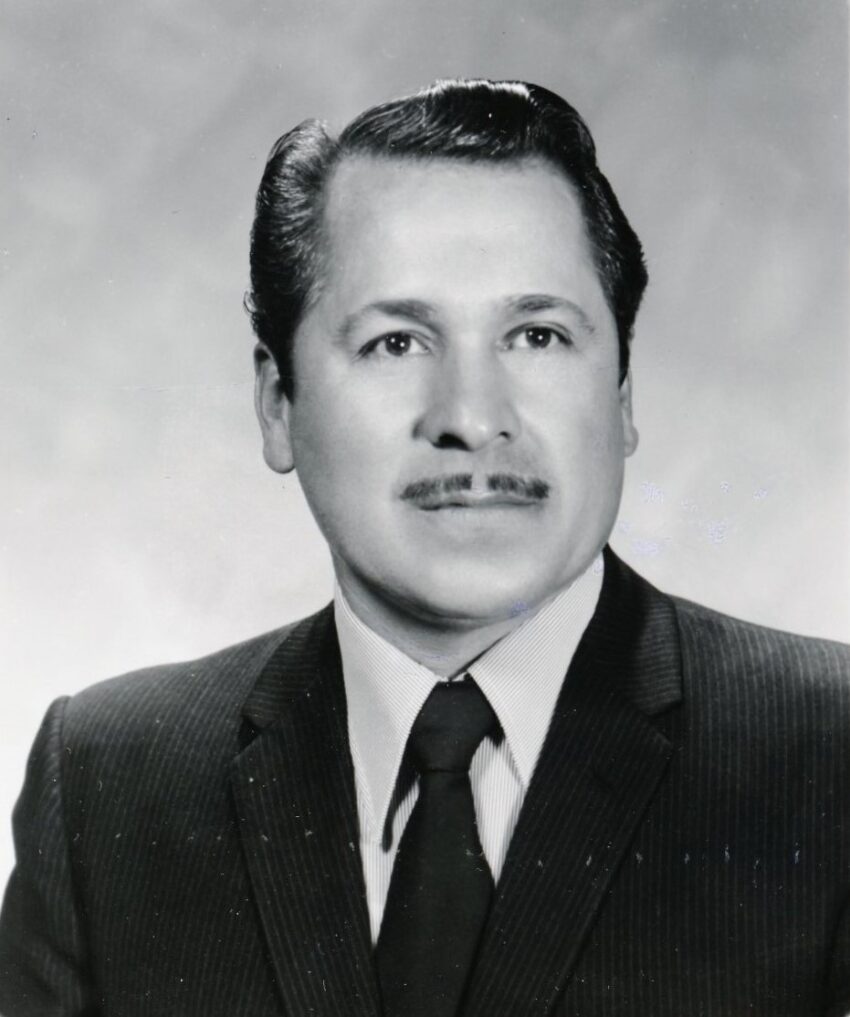[Excerpt from Dodge City and Ford County, Kansas 1870-1920 Pioneer Histories and Stories. Copyright Ford County Historical Society, Inc. All Rights reserved.]
My father was one of about 100 men from his part of Mexico that were recruited by the Santa Fe Railroad to come and work at maintaining the railroad tracks. He worked at several locations, living in railroad box cars and he transferred wherever they needed extra help to insure [sic] the safety of the freight and passenger trains.
He first came to the U.S.A. in 1901, as a bachelor and then he returned to Mexico, to marry my mother in 1907. She accompanied him to Dodge City and they built a house just east of where the present freight depot stands. Later on, the Santa Fe needed that particular ground to extend the capacity of the freight depot and so my parents had to move east of where the roundhouse stood. My parents built a house of old boards and old grain doors that the Santa Fe threw away.
I attended Coronado School that was located in the village. The school consisted of three classrooms, but only two were used after 1931. One classroom had four grades, and the other had three. When you put 50 or 60 students in one room, they sometimes were a little crowded. The teachers are to be commended for maintaining order and educating us under those conditions. Not only did we have a language problem, because most of us didn’t speak a word of English, the teachers didn’t speak Spanish. At that time, we couldn’t afford a radio, and TV was unheard of. After I learned to read, I would walk to the public library (about two miles round trip) to read the newspapers. My parents couldn’t afford the two cents [for the local papers] and besides, my brothers and sisters and I needed shoes, clothes, and school supplies. With 12 mouths to feed, newspapers were not a top priority at home. It was during this period of the 1930s that my father took out his citizenship papers.
The one thing that sticks out in my mind is the number of my peers who died as a result of tuberculosis. Since most of the inhabitants worked on the section gang, everyone drank from the same cup provided by the railroad for the employees. A Dr. Crumbine was riding on a passenger train and he noticed another passenger going to get a drink from the water cooler situated at the end of the coach. He noticed the incessant coughing and sickly appearance of the individual. He, (Dr. Crumbine) was thirsty and went to get a drink. He hesitated, thinking that the cup which was provided might be infected with tuberculosis. He had it tested and his suspicions were confirmed. He campaigned to make it mandatory that paper cups be provided for individual use. If memory serves me correctly, over 40 of my classmates at the Coronado School died as a result of being infected with tuberculosis during that period of time.
Some of the teachers who were pioneers at Coronado School were: Miss Adams (Lola Crum), Mrs. Hazel Whited, Arthur Scroggins, Mrs. Vivian Smith and many others whose names I can’t recall. To these individuals, we will always be grateful for their patience and dedication to teach us in an environment that was a long way from being ideal.
The village was a city within a city. We had a church, a grocery store, dance and pool hall.
In spite of the language barrier and being secluded, several of the students were determined to succeed and they did. Several became nurses, engineers, mechanics, boiler makers, city commissioners, etc.
In closing, I want to “make something perfectly clear.” I’m grateful to the Santa Fe for making it possible for my family to better their state in life. They made it possible for my dear parents to avoid religious persecution and this country has benefited by five of us serving in the military in defense of this great country.
Louis T. Sanchez
Dodge City and Ford County, Kansas 1870-1920 Pioneer Histories and Stories is available for purchase from the Ford County Historical Society.

